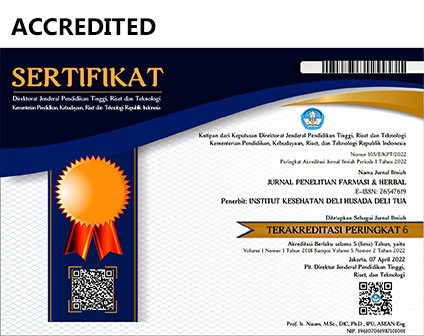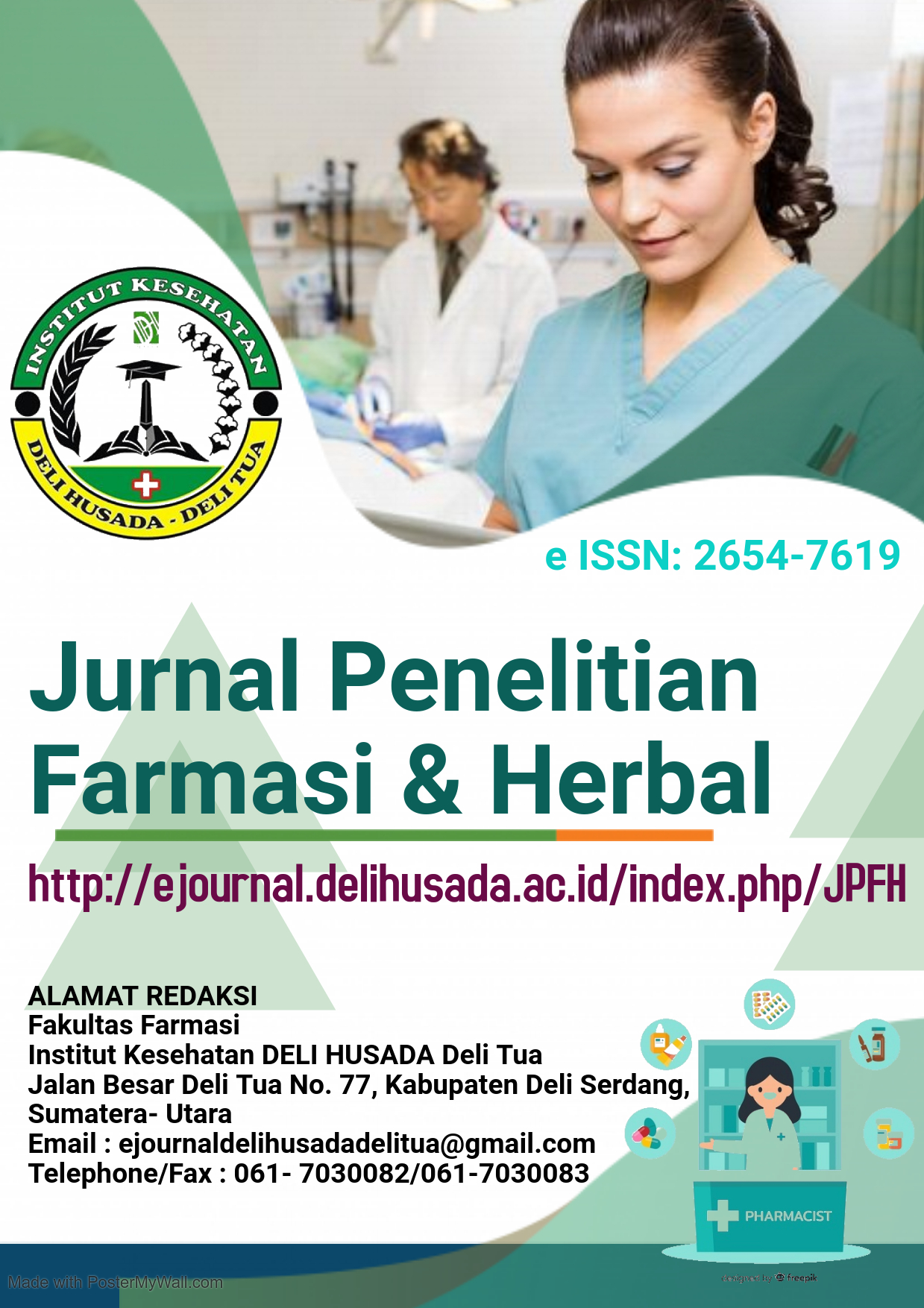UJI CEMARAN MIKROBA Coliform DAN IDENTIFIKASI Escherichia coli PADA SEDIAAN JAMU QUSTHUL HINDI YANG BEREDAR DI PASARAN
Abstract
The need to maintain endurance during the Covid-19 pandemic has increased the intensity of people consuming herbal medicine. The Qusthul Hindi herbal medicine comes from the qust plant. This plant has the potential to treat various human ailments, including respiratory, digestive, and metabolic disorders. Making herbal medicine that is still very simple allows herbal medicine to be contaminated by microbes. This study aims to identify the presence of Coliform microbial contamination and E. coli bacteria in Qusthul Hindi herbal preparations circulating in the market. The five samples of Qusthul Hindi herbal medicine used in this study were obtained from several shops in Indonesian e-commerce. The Coliform microbial contamination test was conducted using the Most Probable Number (MPN) method. The MPN test consists of 2 stages: a presumptive test using Lactose Broth media and a confirmed test using Escherichia coli Broth media. MPN calculation is based on the number of positive test tubes. Positive test tube observations can be seen by observing the emergence of turbidity or the formation of gas contained in the Durham tube. The MPN value is calculated from the combination of positive tubes in the MPN table. The identification of Escherichia coli was tested using Eosin Methylene Blue Agar (EMBA) selective media, and then gram staining was performed. From the results of the estimator test, confirmatory test, selective medium test to gram staining, it showed that five Qusthul Hindi herbs tested were positively contaminated by Coliform microbes and all samples showed positive results for Escherichia coli contamination.







